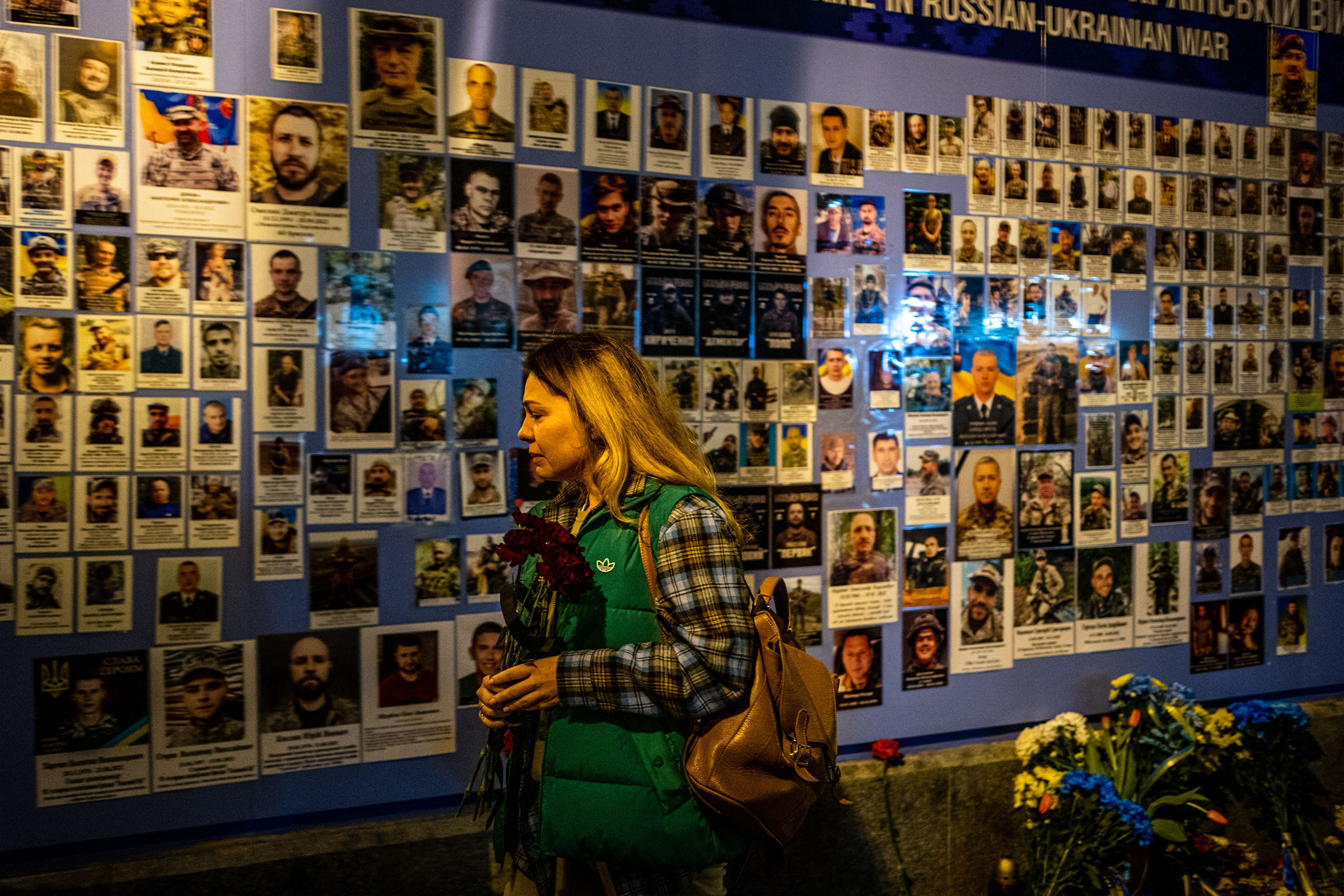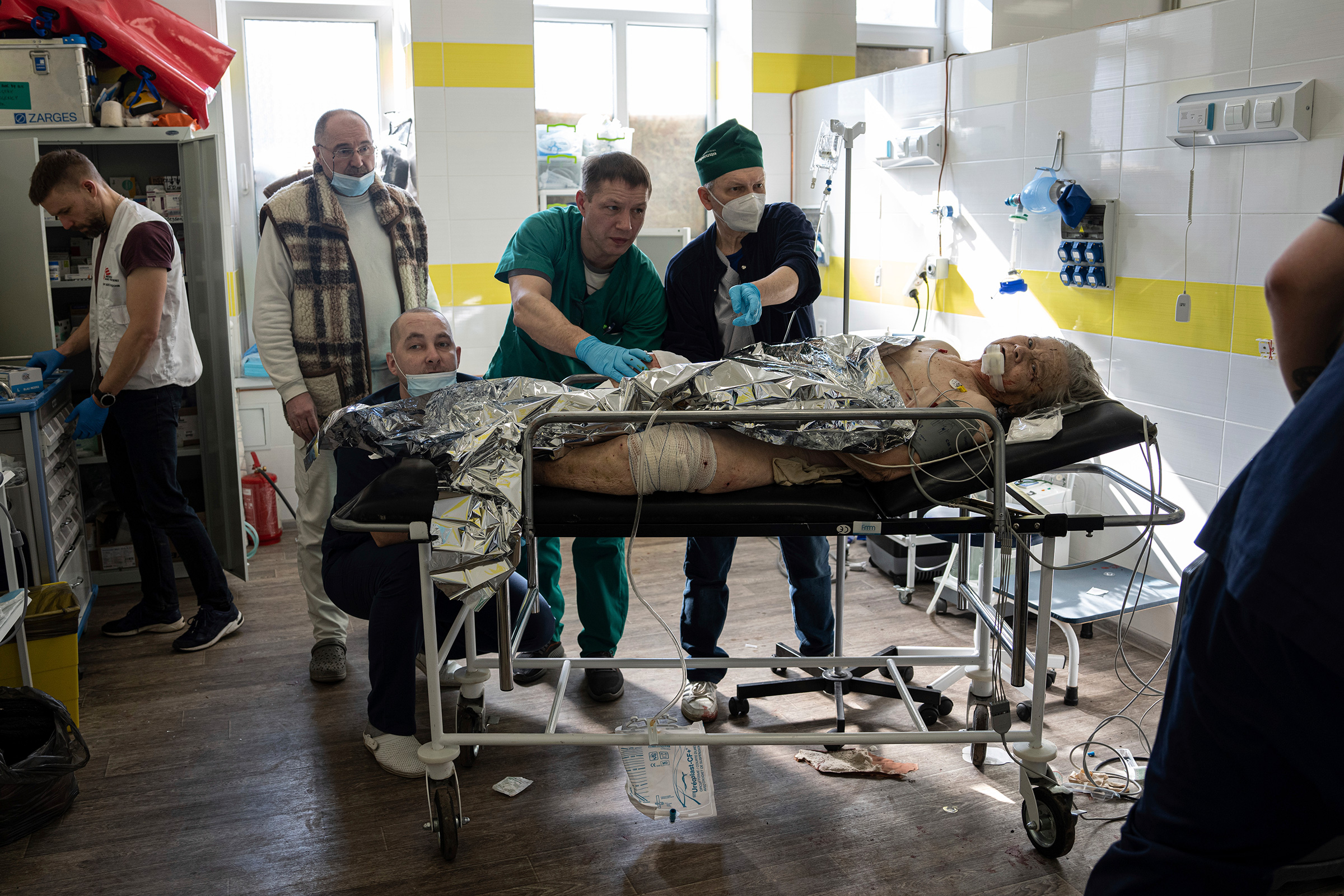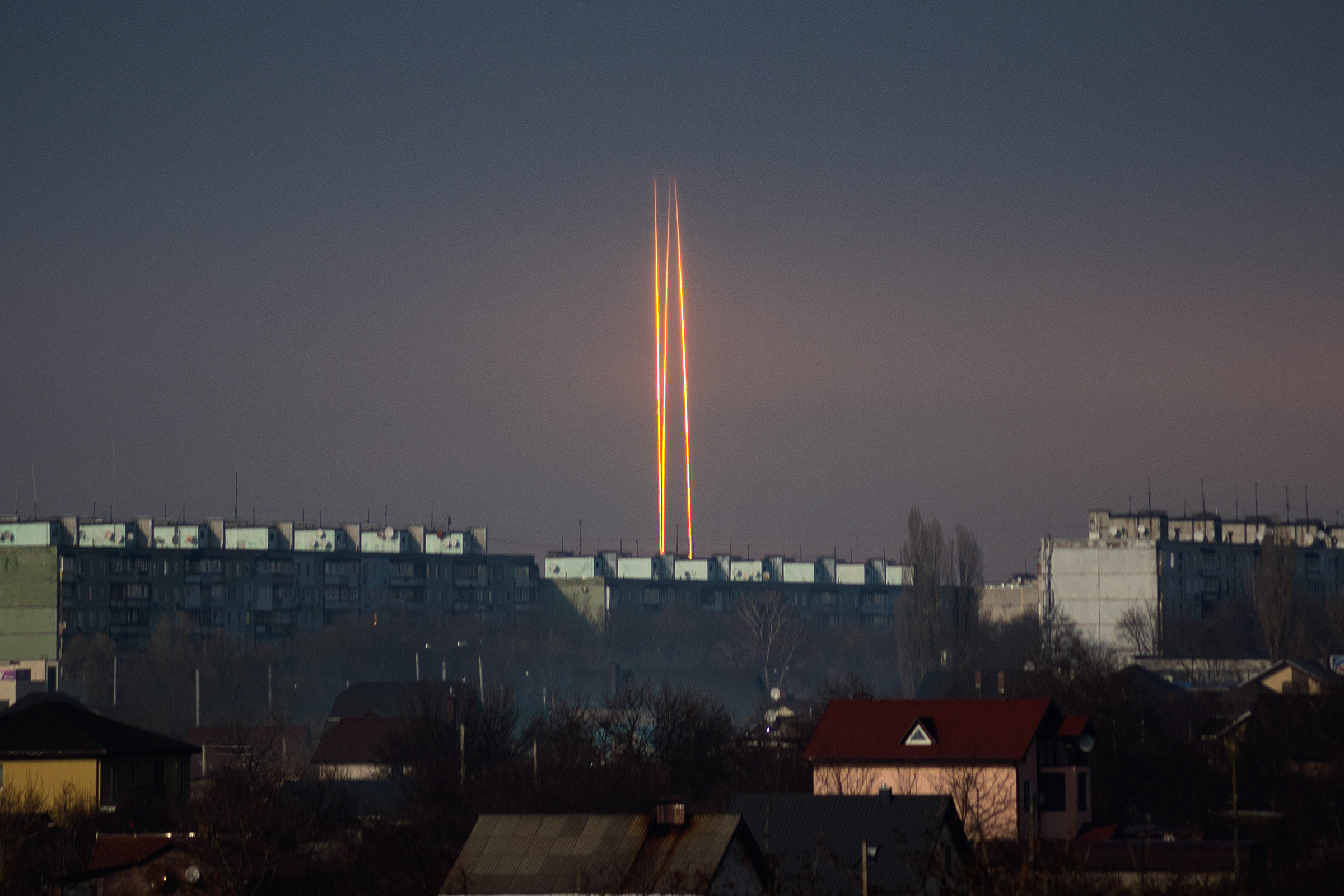
Amid continued violence in Ukraine, the International Criminal Court is expected to pursue cases against Russia related to two war crimes: the kidnapping of Ukrainian children to reeducate them and make them Russian, and attacks on civilian infrastructure far from the battlefields, the New York Times has reported.
If the cases proceed, the former is likely to generate major global attention, not only because it represents a crime against the youngest Ukrainians, but because this type of crime is explicitly part of the Genocide Convention, the 1948 international treaty codifying the crime of genocide.
This case would be a preliminary, but important validation of the tireless work to gather evidence of war crimes committed by Russia.
While the actions of the ICC garner global attention, much of their work takes place quietly and with great difficulty among the ruins of battle, where investigators must rush to the brink of the frontline to interview witnesses before they flee for safety. Then, there’s the delicate and time-consuming material search—looking for fragments of ammunition, examining the ruins of a building or the crater of a bomb—before the wind blows it away, or before Ukrainian authorities disrupt the scene as they hurry to restore power or rebuild.
More from TIME
“In those conditions, a lot of it vanishes,” says Denis Krivosheev, the head of research for Amnesty International’s Eastern Europe and Central Asia office.
Nevertheless, Krivosheev says gathering as much evidence as possible is essential, because it can help reveal what happened during the course of the war. According to Amnesty International, there’s enough evidence so far to classify Russian actions as war crimes and possibly as crimes against humanity.
Some experts argue it’s already clear that Russia is committing genocide under international law, and that it’s time to name it as such. But Krivosheev says there’s not enough evidence yet to determine whether Russia’s actions can be deemed the “crime of crimes,” as genocide is sometimes referred to in international criminal proceedings.
“There’s a very high bar before this term can be used. We’re not ruling it out,” says Krivosheev.

How does the international community define genocide?
The definition of “genocide” is determined by its context. The strictest definition, of course, is the legal one. This was codified in the 1948 Genocide Convention, a treaty adopted in the aftermath of the atrocities of the Holocaust that has since been ratified by most countries. It bans certain “acts committed with intent to destroy, in whole or in part, a national, ethnical, racial or religious group.”
The challenge of the definition according to international law, says Ernesto Verdeja, associate professor of political science and peace studies at the University of Notre Dame, is proving both that a particular person did certain crimes, and that they had the intention of destroying a group.
The 10 Stages of Genocide, a model created by genocide study scholar Gregory Stanton, is another guideline scholars use to identify and define genocide. This model, which Stanton emphasizes doesn’t necessarily happen linearly, describes the typical process genocides usually follow. These steps include discrimination, dehumanization (denying the humanity of a group), extermination and, ultimately, denial.
Some researchers who study genocide argue that when compared to the standard definition of genocide, Russia’s war in Ukrainian clearly fits. What’s convinced Verdeja, he says, is the way Russian leaders, including Putin, talk about the war. For instance, Russian leaders and policy wonks sometimes use dehumanizing language to refer to Ukrainians, describing them as “non-humans.”
“The discourse already is pretty emphatic that they’re carrying out a military campaign to eliminate this ‘fiction,’ this ‘dangerous fiction,’ of a Ukrainian nationhood,” he says, describing the Kremlin’s messaging. “The idea is that Ukrainians are really just Russians, who have rebelled against Russia, and they need to be punished and brought in forcefully.”
What are the signs that Russia’s actions could be classified as genocide?
One major sign that Russia is committing genocide is that systematic violence is perpetuated against not only male civilians, but against women, children, and the elderly, says Kristina Hook, assistant professor of conflict management at Kennesaw State University.
Russia has shown an “annihilating mindset” by attacking civilians who are evacuating and forcing people into “filtration” camps, she says. The treatment of children particularly points to genocide, says Yonah Diamond, an international human rights lawyer at the Raoul Wallenberg Centre for Human Rights. The “forcible transfer” of children to another group—by having them reeducated or adopted by Russians—violates the Genocide Convention. Over 6,000 children have been put in camps or placed up for adoption in Russia, according to a Feb. 14 report by Yale’s Conflict observatory.

Another red flag is Russia’s aggression towards symbols of Ukrainian identity, including the Ukrainian language, says Hook. Human rights experts appointed by the United Nations warned on Feb. 22 that they are concerned about “the continued denigration of the history and identity of Ukrainian people as a justification for war and hatred,” citing attacks on Ukrainian museums, churches, and libraries. Especially in occupied Ukraine, they said, Russia has worked to “erase local culture, history and language”—including by seizing Ukrainian literature and history books. In occupied Russian territories, people were arrested last year for playing Ukrainian music at a wedding, while a DJ who played a Ukrainian song in a café was sentenced to 10 days in prison.
Russia’s discourse about the war also allegedly violated a specific tenet of the Genocide Convention: making false allegations of genocide. In the past year, Putin and the Kremlin have falsely accused Ukraine itself of committing genocide against ethnic Russians, declaring Ukrainians to be “Nazis,” and used that claim as a pretext to justify its invasion.
Ukraine seems to have endorsed the idea that this last point is the clearest example that Russia is guilty of genocide. Last February, it submitted a request to the International Court of Justice for a hearing, accusing Russia of violating the Genocide Convention by falsely claiming that Ukraine committed genocide, in order to vindicate its invasion.
What are the implications of declaring a genocide?
If Russia is committing genocide in Ukraine, there are major implications for international policy.
First, under the Genocide Convention, signatories are expected to stop and prevent genocide. They’re expected to act “as soon as countries become aware of a serious risk, that these acts are occurring on a systematic basis,” says Diamond. And beyond working to stop and prevent continued genocide during the war, states will also be responsible for finding ways to hold Russia accountable for the crimes into the future. According to Diamond, that could look like seizing perpetrators’ assets, compensating victims, and establishing a tribunal to examine Russian crimes.

Genocide also follows certain patterns, which may help to predict the trajectory of the war. One telling factor, says Hook, is that Russian forces have been willing to bear high casualties. Historically, she says, perpetrators of genocide have been willing to “take greater risks” because their goal is to destroy another people. That also means that genocides tend to end in “total victory”—where one side is utterly defeated in battle, says Hook.
Alena Lunova, advocacy manager for the human rights organization ZMINA, says documenting crimes is crucial to her fellow Ukrainians. While she herself believes the war to be a genocide, “a genocide case is not the goal,” she says. For her, she says, she hopes that there will one day be a list of perpetrators who have committed crimes. As Verdejo points out, other violations of international law have comparable sentences. “In the context of crimes against humanity, you don’t have to prove that the intention was to destroy the group, you just have to…be able to observe the facts on the ground,” he notes.
Whether or not courts ultimately recognize genocide from a legal perspective, says Krivosheev, he hopes that Russians will be held accountable for their crimes. While defenders of human rights will only ever capture a fraction of what’s happened in Ukraine, he says, they must keep going and work to honor victims’ experiences and to prevent crimes in the future.
“We’re all slightly petrified about how big this task will be. But trying to do as much as you can, at this point, is essential. We owe it to Ukrainians, to people who are suffering, to those who were killed, to those who are left behind.”
More Must-Reads From TIME
- The 100 Most Influential People of 2024
- The Revolution of Yulia Navalnaya
- 6 Compliments That Land Every Time
- What's the Deal With the Bitcoin Halving?
- If You're Dating Right Now , You're Brave: Column
- The AI That Could Heal a Divided Internet
- Fallout Is a Brilliant Model for the Future of Video Game Adaptations
- Want Weekly Recs on What to Watch, Read, and More? Sign Up for Worth Your Time
Contact us at letters@time.com